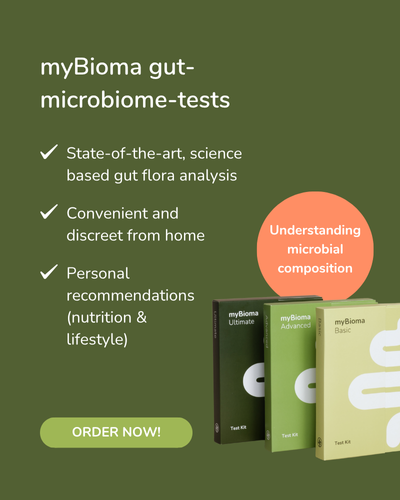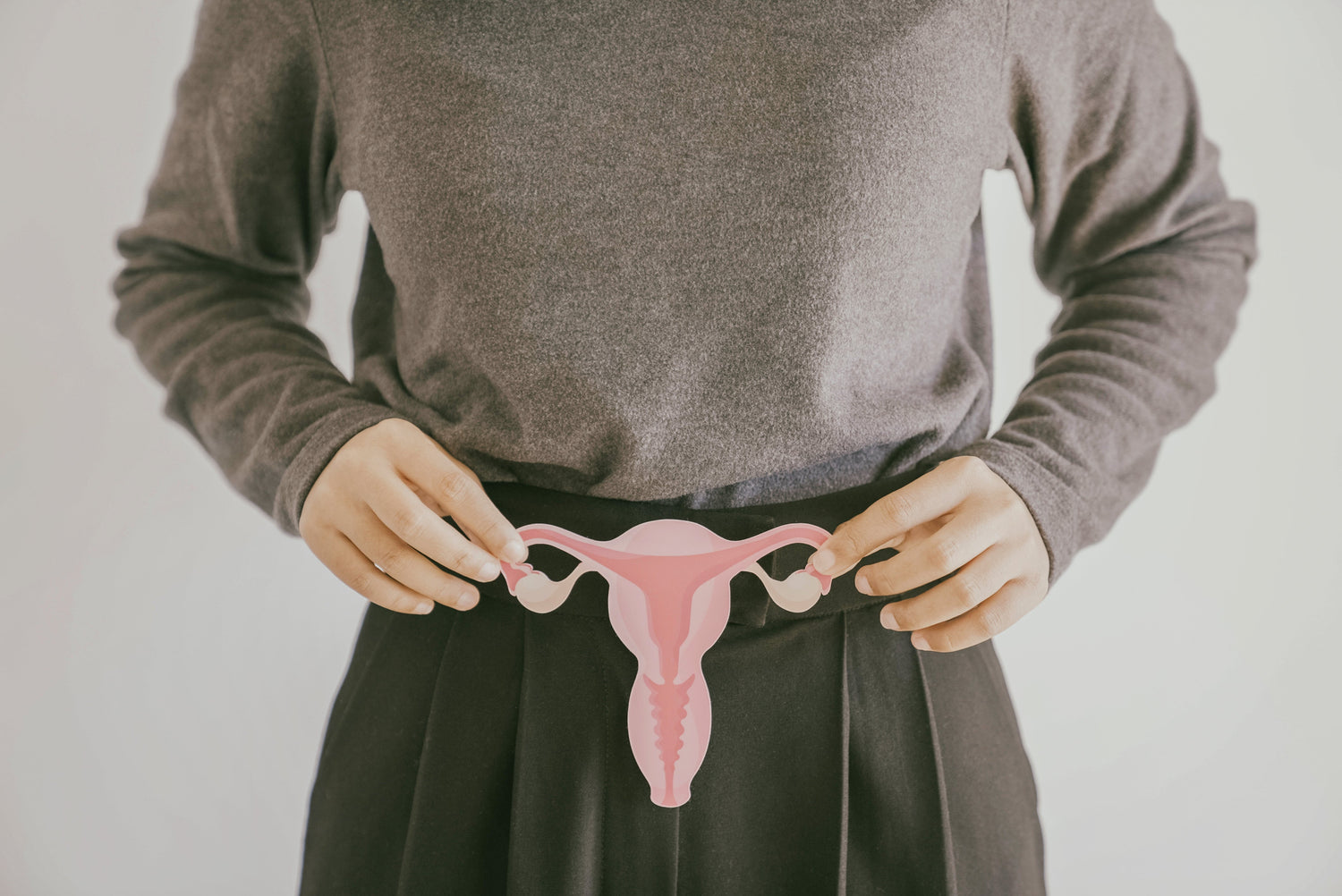Table of contents
- If you want to have a healthy hormone balance, you need a healthy microbiome.
- What do hormones have to do with the intestines?
- The various roles of the gut microbiome within the endocrine system include:
- The microbiome influences almost every hormone, let's take a closer look at 4 of them:
- What do the microbiome and thyroid have to do with each other?
- Microbiome & Estrogen
- Microbiome & Melatonin
- Microbiome & stress
- This is how you bring your hormones back into balance
If you want to have a healthy hormone balance, you need a healthy microbiome.
Every day we go through a change in hormones in our body. In the morning, rising cortisol levels help us get out of bed and in the evening melatonin lulls us to sleep. During the day, leptin tells us when it's time to eat, and as we eat, ghrelin tells us when we've had enough. And as is often the case, our microbiome also has a say in the regulation and production of these hormones.
What do hormones have to do with the intestines?
Studies have found that our gut microbiome may even be one of the most important players in the endocrine system is (1). The endocrine system is the collection of organs that are responsible for hormones. In this system you can imagine your microbiome like a conductor at the center of the orchestra. It sets the tone and not only produces hormones, but also decides how much of each hormone to make and release. However, if the microbiome becomes out of balance, it can affect the entire hormonal balance.
The various roles of the gut microbiome within the endocrine system include:
- Synthesis and secretion of most hormones
- Regulation of the expression of these hormones
- Inhibiting the production of certain hormones in other organs of the body
- Increasing the production of hormones throughout the body
The microbiome influences almost every hormone, let's take a closer look at 4 of them:
- Thyroid stimulating hormone (TSH)
- estrogen
- Melatonin
- Cortisol, a stress hormone
What do the microbiome and thyroid have to do with each other?
It is already known that high diversity is associated with a healthy microbiome. Diversity describes the diversity of the bacteria in the microbiome. However, low diversity, i.e. a small number of different bacteria, is associated with diseases. For example, low microbial diversity has been linked to high levels of thyroid-stimulating hormone (TSH) (2). Too much TSH can cause the body to produce higher levels of the thyroid hormones T3 and T4, which in turn can lead to hyperthyroidism. Hyperthyroidism can cause irritability, anxiety, irregular heartbeat, and rapid weight loss.
An unbalanced gut microbiome is also linked to hypothyroidism (3) – when the thyroid produces too little TSH. Common symptoms of hypothyroidism include weight gain, sensitivity to cold, dry skin, constipation and poor memory. (4)
Thyroid hormone production and the gut are connected - making gut health a top priority for anyone dealing with thyroid issues. If you would like to find out more about this, be sure to read our detailed article: Thyroid & Gut Health: The Underrated Connection You Should Know About
Microbiome & Estrogen
We often associate the hormone estrogen more with women than with men. However, they also need it and in just the right amount. The microbiome is partly responsible for the smooth regulation of circulating estrogen in the body. The bacteria produce an enzyme, beta-glucuronidase, which in turn converts estrogen into its active forms (5). An unbalanced microbiome, also known as dysbiosis, reduces the amount of estrogen present in the body. The estrogen-regulating function of certain bacteria in the microbiome is called “estrobolomes” and consists of bacterial genes that are able to metabolize estrogens. This is very important because estrogen is a powerful promoter of tissue growth throughout the body (6). However, too much of it can cause problems ranging from weight gain to cancer. It is therefore crucial that our microbiome is in balance.
Microbiome & Melatonin
Many people associate melatonin with good sleep. No wonder, because it helps us get tired and promotes our ability to fall asleep and stay asleep. In order for our body to produce enough melatonin, it needs the so-called “happiness hormone” serotonin; surprisingly, 90% of this is also produced by our bacteria in the intestines (7). Several studies have shown that inadequate sleep can have negative effects on the intestinal microbiome. Irregular sleep, such as that caused by shift work, has been shown to increase inflammation in the body and increase the risk of obesity, metabolic syndrome and type II diabetes. (8th)
Melatonin helps the body maintain healthy sleep and wake cycles and can promote a sense of calm. So maintaining a regular wake-up and bedtime schedule is very important for a healthy microbiome and hormonal balance.
Microbiome & stress
Cortisol, adrenaline and norepinephrine are hormones that put the body on high alert in excessive amounts. In certain dangerous situations where close attention is required, these hormones can of course be essential for survival. However, if these remain at a high level for a long time, this can negatively affect the composition of the microbiome.
The effect of chronic stress on the gut is bidirectional. The hormone that releases the stimulus for cortisol, corticotropin-releasing hormone (CRH), can poke holes in the intestinal lining, which can lead to increased intestinal permeability, also known as leaky gut syndrome. (9)
"If you want to have a healthy hormone balance, you need a healthy microbiome."
This is how you bring your hormones back into balance
If you suspect your hormones are out of balance, you should address the health of your microbiome. It would be important to take a close look at the microbiome to find out which bacteria are present in excess and which are insufficient. Once you have identified these key factors, targeted dietary and lifestyle measures can be initiated. With the right foods, the right bacteria can be fed and multiplied so that they can work for you again.







